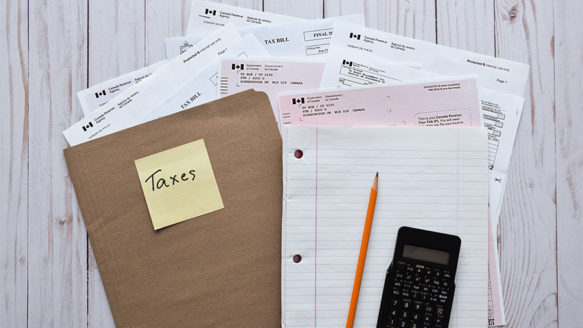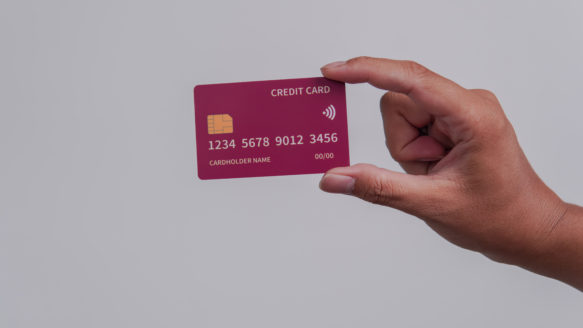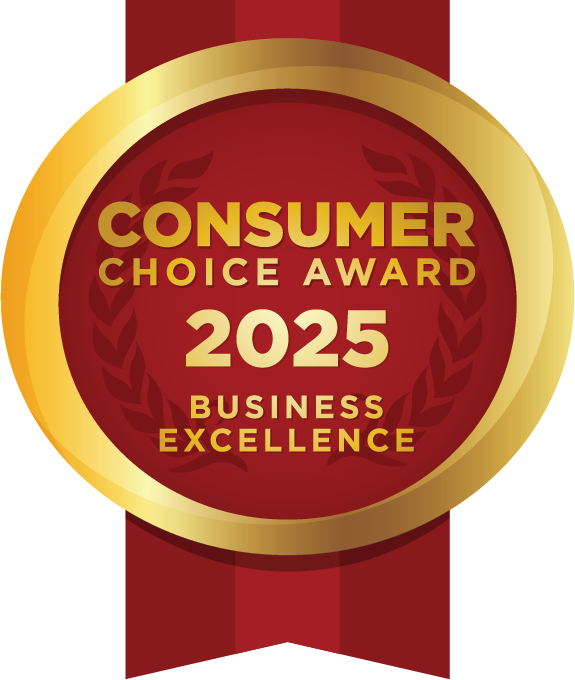
Alberta After the 2025 Election: What’s Next for Your Wallet?
The election is over—so what’s next for your wallet? Here’s exactly how the results will affect your daily life, from your paycheque and grocery cart to your heating bill and housing costs.
Whether you’re working two jobs, raising a family, or just trying to keep up with rising costs, what really matters now is whether life is about to feel easier or tighter.
1. A Small Tax Break = A Bit More in Your Paycheque
As part of their election promises, the Liberal government announced it’s lowering the basic income tax rate from 15% to 14%. This change applies to taxable income up to $57,375. Even if your income goes above that threshold, you still benefit from the tax cut — just on the first $57,375 of your taxable income. Everything above that continues to be taxed at the higher rates (unchanged by this policy).
What does this mean for you?
- For individuals earning around $57,000 annually: The 1% reduction on the first $57,000 of taxable income translates to approximately $570 in tax savings.
- For two-income households: If both partners earn similar incomes, the combined savings could be around $1,140 annually.
These savings might be reflected as a larger refund at tax time or as slightly increased amounts in each paycheque, depending on how your employer calculates payroll deductions. That’s a couple of extra grocery runs, a month’s worth of utilities, or a chunk off your credit card balance. It won’t change everything overnight, but it helps.
2. No More Carbon Tax = Cheaper Gas
As of April 1, 2025, the federal carbon tax was removed. This aligns with the Liberal Party’s campaign promise to reduce everyday costs.
Gasoline prices in Alberta immediately dropped by about 11.4 cents per litre. For an SUV driver filling up weekly, that’s around $8–10 less each trip, saving roughly $35–$40 a month.
Diesel costs, impacting grocery delivery and other services, have also dropped, potentially easing some prices at stores.
3. Utility Bills Are Dropping Too
Home heating costs also dipped significantly, especially for natural gas users. With the carbon tax gone, utility bills are expected to fall noticeably — if your winter heating bill averaged around $250, you could see it drop to about $200 or less, depending on your home’s efficiency. Electricity costs will likely come down slightly, too, especially if you rely on electric heat or cooking. Typical Alberta households can expect to save about $50–$100 monthly (more during colder months).
4. Planning to Buy a Home? You Might Save Thousands
First-time homebuyers got a big win, too. The government eliminated the GST (5%) on new homes priced below $1 million. If you’re purchasing a home valued at $400,000, you’ll save about $20,000.
Additionally, the Liberals have pledged to build 500,000 new homes annually across Canada, aiming to ease housing shortages. Think of this like adding a city the size of Edmonton every two years, which could help stabilize or even lower housing costs over time. According to the Government of Canada, building more homes is one of the best ways to help stop prices from going up too fast. If more homes are built, prices and rent might not rise as much because there will be more choices for people.
Have questions?
Need more information or want to talk to a certified financial counsellor for peace of mind? Let us help.
Call 1-888-294-0076 or fill out this form to speak with a certified financial counsellor. It’s free for all Albertans.
5. Groceries: Prices Still Rising in 2025
Even with some financial breaks, groceries are a different story. According to Canada’s Food Price Report 2025, Albertans can expect grocery costs to rise by 3–5% this year, meaning roughly $800 more annually for an average family of four.
Specific increases you’ll notice at checkout include:
- Ground beef: 25–30 cents more per pound
- Bread: 10–20 cents more per loaf
- Potatoes: 30–50 cents more per bag
- Restaurant meals: $1–$3 more per meal
These increases are a big part of what the new government will now have to deal with — and how they handle it could shape how voters feel about the promises made in this election.
6. Seniors and Retirement: A Little More Financial Cushion
Good news if you or your parents are seniors: retirement payments are increasing. This is one of the quieter signs that a government is responding to the rising cost of living, not just for working families, but also for retirees.
Adjustments to CPP, Old Age Security (OAS), and the Guaranteed Income Supplement (GIS) aim to help older Albertans manage rising costs:
- CPP payments increased by 2.6%, averaging about $777 monthly.
- OAS benefits for seniors aged 75 and over increased to around $800 monthly.
- GIS monthly payments for single seniors increased to $1,086.88.
7. What Else Will We Notice in 2025?
Beyond direct election impacts, here are other trends affecting Albertans this year:
- Auto insurance rates are still climbing. Alberta drivers are experiencing increased auto insurance premiums due to factors like inflation, higher claims volumes, and rising repair costs.
- Interest rates may finally start to come down. The Bank of Canada recently said that rate cuts could begin in the second half of 2025 if inflation stays on track. That would mean lower interest on mortgages, lines of credit, and other loans — saving Alberta households potentially hundreds of dollars a month depending on the size of their debt.
- Credit card debt is becoming more expensive for Albertans to carry. According to Equifax Canada, total consumer debt in Canada reached $2.56 trillion at the end of 2024, with credit card balances hitting record highs and the average credit card debt per person rising to $4,562 — nearly a 7% increase from the year before. Many Albertans, like other Canadians, are relying more on credit cards for essentials as the cost of living remains high.
- Credit scores are under pressure. Missed or late payments can remain on your credit report for up to six years, significantly impacting your ability to access affordable credit in the future. As more Albertans struggle to keep up with rising expenses, maintaining a healthy credit score is more important than ever — especially if you’re applying for a mortgage, vehicle financing, or a rental in 2025.
So, is life about to feel easier? For some Albertans, maybe a little. While a few election-related changes might ease certain expenses, ongoing cost-of-living pressures and growing debt loads continue to weigh heavily on household budgets. For those carrying debt — especially the nearly half of Albertans who report being just $200 or less from financial insolvency each month — any savings from tax cuts or lower utility bills are often overshadowed by rising interest charges, climbing grocery costs, and higher insurance premiums. That’s why financial planning — and real, personalized support — matters more than ever.
Financial Stress Is Rising, And So Is the Need for Support
The headlines are big — tax breaks, housing investments, cheaper fuel — but once the buzz fades, many Albertans are left asking a quieter, more personal question: What does this mean for me?
For some, a few extra dollars a week makes a difference. For others, especially those carrying debt, the reality is more complicated. If your bills still outweigh your paycheque, and the interest just keeps stacking, it’s clear: what Albertans really need is more than just headlines and handshakes — they need hands-on help that meets them where they are.
That’s where Money Mentors steps in.
Meet Money Mentors: A Lifeline for Albertans Navigating Financial Stress
We’re not a bank. We’re not here to offer you a high-interest loan. We’re a non-profit organization proudly serving Albertans for over 25 years, built on one mission: to help everyday people take control of their money and their future — no shame, no pressure.
Whether you’re living paycheque to paycheque, overwhelmed by credit card debt, or just tired of feeling behind, our role is to support you with the tools, education, and real solutions to move forward.
We help with:
- Free credit counselling to create a personalized, judgment-free financial action plan
- Free money management courses (online and in-person) to boost your financial confidence
- Budgeting tools and workbooks that are actually practical — not lecture-y
- Debt relief options that include consolidation support, creditor negotiation, and, when needed, the Orderly Payment of Debts (OPD) program
And everything we do is designed for Alberta realities — from oilfield pay cycles and CRA tax issues, to navigating financial stress in rural communities or busy urban families.
When Life Gets Expensive, We Get Creative
In a year like 2025 — when groceries are rising, gas is still up, and many Albertans are seeing their credit card balances swell — it’s not just about cutting costs. It’s about creating financial stability, even in instability.
That could mean:
- Helping a two-income household build a plan to tackle rising credit debt while still covering school fees and groceries.
- Guiding a self-employed Albertan to structure their fluctuating income into a workable monthly budget and finally pay down that relentless CRA tax debt.
- Helping someone who’s fallen into collections and feels overwhelmed every time the phone rings — not knowing what’s real, what’s urgent, or how to make it stop. We step in to create a clear, doable plan that replaces chaos with calm.
Money Mentors sees the full picture. Because we know debt doesn’t exist in a vacuum — it’s tied to everything from your mental health to your relationships to your sleep at night. That’s why our work goes beyond debt. It’s about helping you reclaim control and breathe again.
And Then, When Debt Feels Like Too Much — There’s the Orderly Payment of Debts (OPD)
If you’ve tried to budget, if you’ve tried to catch up on your credit cards, if you’ve done everything “right” and it’s still not enough — this is when a more structured, government-backed option can help.
The Orderly Payment of Debts program, known as OPD, is one of the most powerful yet under-known tools available to Albertans. And Money Mentors is the only organization in Alberta that can facilitate it.
So what is it?
OPD is a federally legislated debt repayment program that lets you combine your unsecured debts into one affordable monthly payment, with the interest reduced to a fixed 5% rate. That means:
- No more multiple payments with different due dates
- No more 18–29% interest bleeding you dry
- No more creditor harassment, wage garnishments, or legal threats
It’s not bankruptcy. And it’s not a quick fix. It’s a structured, manageable, dignity-preserving path to becoming debt-free in five years or less — with real education and support along the way.
Who OPD Helps — and Why It’s Working for So Many Albertans
OPD works best for people who have reliable income but are buried under high-interest debt. That includes:
- Full-time employees trying to raise a family
- Self-employed Albertans with consistent client work
- People behind on CRA taxes but still earning
- Anyone juggling several credit cards, payday loans, or personal loans that just aren’t getting paid down
Take Kim, for example. She was $28,000 in debt — not because she was reckless, but because life got expensive. She worked, she paid her bills, but it wasn’t enough. OPD helped her roll everything into one monthly payment, lock in a lower interest rate, and finally start to see her balance shrink.
Fast-forward a few years? She’s debt-free, has a small savings cushion, and is planning for retirement. That’s the kind of win we live for.
But Wait — What If OPD Isn’t the Right Fit?
That’s the beauty of starting with a Money Mentors credit counselling appointment: we’ll help you look at everything. OPD is just one tool — and it’s not always the best one.
If another option makes more sense, like an informal debt settlement, another debt management program, or just building a better monthly plan, we’ll walk you through it — free of charge, and with absolutely zero pressure. We are not here to “sell” you anything. We’re here to help you make the best call for your future.
Why Thousands of Albertans Trust Us
- Government-Approved: The OPD program is a federally legislated debt solution — and in Alberta, Money Mentors is the only organization authorized to offer it.
- Non-Profit & Alberta-Based: We’ve helped tens of thousands of Albertans get out of debt since 1997.
- Real People, Real Solutions: Our Certified Financial Counsellors are trained to support your unique situation — not just recite generic advice.
Take the Next Step — Quietly, Privately, and at Your Own Pace
If you’re reading this after scrolling through rising grocery receipts, or feeling that tightening in your chest when you think about your credit card bill — you don’t have to figure this out alone.
Start with a conversation. No pressure, no shaming. Just options.
- Speak with an Certified Financial Counsellor today
- Learn more about OPD and how it works.
- Explore our free budgeting tools to get a head start.
You deserve support that’s kind, local, and effective. And we’re ready when you are.
Have questions?
Need more information or want to talk to a certified financial counsellor for peace of mind? Let us help.
Call 1-888-294-0076 or fill out this form to speak with a certified financial counsellor. It’s free for all Albertans.








